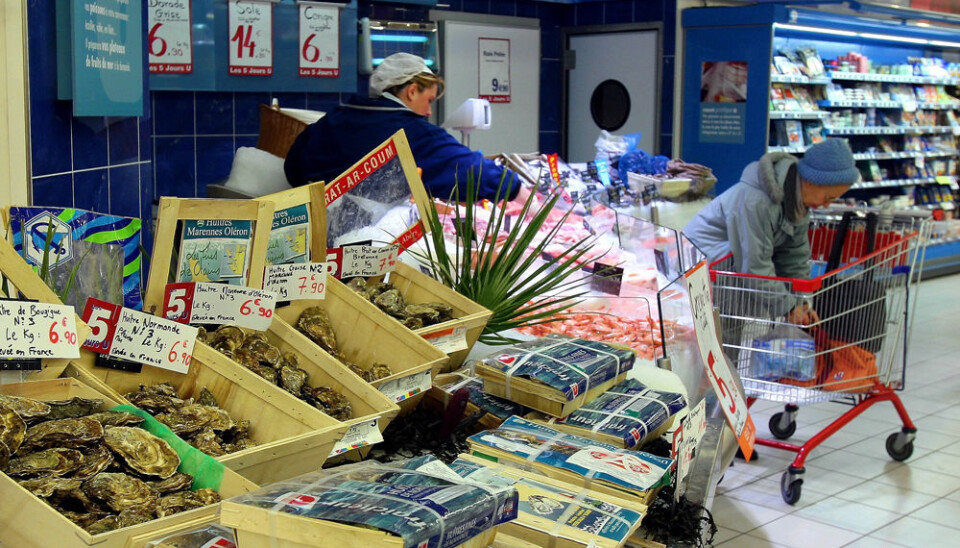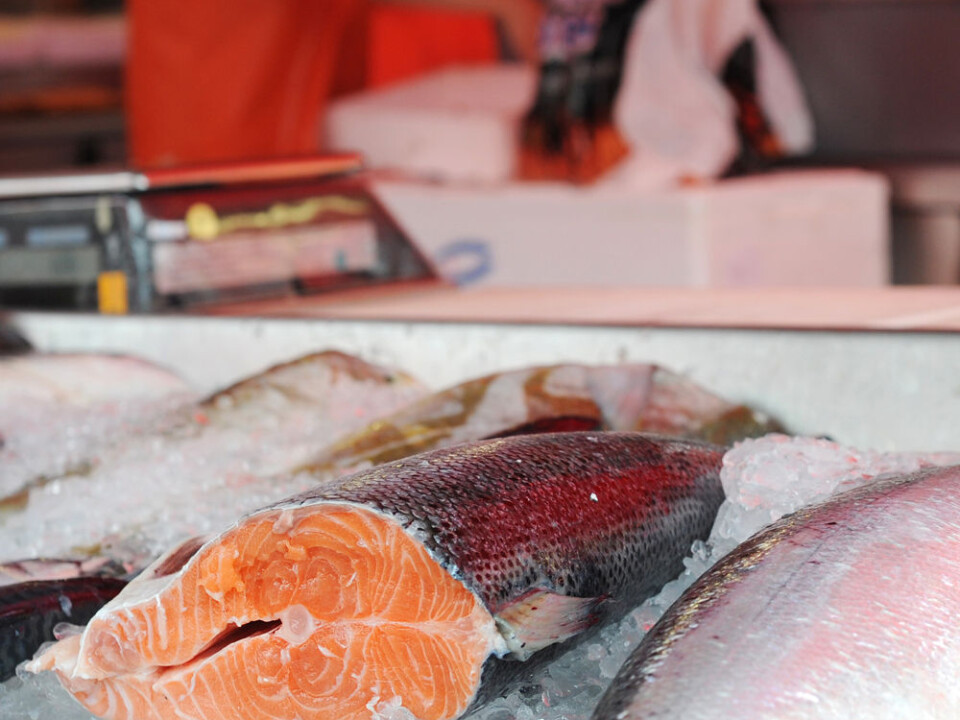This article was produced and financed by Nofima The Norwegian Institute of Food, Fisheries and Aquaculture Research

The ambiguity of sustainable seafood
Norwegian companies who sell seafood to Europe have to deal with many different ecolabels and requirements.
Denne artikkelen er over ti år gammel og kan inneholde utdatert informasjon.
“Brand awareness cannot be blamed on the consumers, but on pressure from many different organisations,” says Director of Research Frode Nilssen at Nofima.
Nilssen is working in a research project in which he has interviewed industrial buyers in the United Kingdom, Germany and France on commission from the Norwegian Fishery and Aquaculture Industry Research Fund (FHF).
“The buyers are to an increasing degree demanding documentation confirming that the products are produced in accordance with strict environmental requirements,” says Nilssen.
“In recent years the Norwegian seafood industry has also encountered these requirements attached to the notions sustainable and environment – and responsibility in production. But sustainability is a difficult notion. This is first and foremost because it is not unambiguous, and is given different content according to wishes and needs.”

Several dimensions
Common for all the supermarket chains is that they have a stated environmental profile in which the notion “sustainable” plays an important role. But many place more perspectives in the notion than we are used to. For the supermarkets, sustainability also concerns the social dimensions, orderly conditions with the suppliers, human rights, energy consumption, packaging, waste disposal and the environment.
The study points to the fact that there are several differences between the countries.
While the Germans and French stick to the notion “sustainable”, the British supermarket chains prefer the notion “responsible purchasing” as a designation for their buying policy for seafood.
“There are several variations between the countries and between the various supermarket chains. My impression is that the British chains are the most conscious and rigid with respect to requirements to seafood suppliers,” says Nilssen.
“The British buyers would rather use their own criteria and requirements than a third party’s ecolabels. In France the buyers have greater focus on the social aspects and energy consumption attached to production.”
The sustainable market
A host of organisations operate within the “sustainable market” and offer labelling schemes – also within the fishery industry. These include the Marine Stewardship Council (MSC), Friends of the Sea, WWF, Greenpeace, Marine Conservation Society and Seafood Choices Alliance.
The ecolabels “guarantee” that the seafood is produced in a sustainable and correct manner and that the fish comes from sustainable stocks.
It is possible to divide these organisations into two categories: those which certify and “approve” a fishery, which is mostly aimed at the industrial market, and those which have a more advisory role in relation to the consumers.
“The large supermarket chains won’t sell themselves to anyone. But they are influenced by the environmental organisations, which mainly use the media as a means of exerting pressure. Therefore, they enter into dialogue with them at closed forums instead of via the media,” says Nilssen.
The Marine Stewardship Council (MSC) has to date established itself as the most important market for the fishery industry.
The reason for this is that the market has attained social aspects and legitimacy among industrial clients, and several supermarket chains demand that the seafood they buy must be MSC approved, particularly in Germany.
“The reason why the MSC label is respected so strongly in the German market is that we are using a considerable amount of the fish species Alaska Pollock, which is MSC certified,” says a buyer for one of the largest German supermarket chains.
“For us, sustainability deals with far more than catch and management. It also deals with, for instance, waste disposal, packaging and energy consumption. The majority of the consumers who are preoccupied with health, sustainability and nutrition represent a distinct segment of the market. But the vast majority are preoccupied with price.”
A piece of advice
“In the future the requirements will become more complete than they are today,” says Nilssen.
“If the Norwegian seafood industry does not follow, it will cost the industry considerable sums of money in the form of lost market shares. But Norway has a solid and well managed resource base, fantastic quality and the industry has demonstrated that it can operate profitably within a sustainable and environmental framework.”
And he has a good piece of advice for the seafood suppliers:
“The supermarkets want good long-term conditions with their suppliers. It’s expensive for the buyers to jump from supplier to supplier. When you’re in, it’s wise to stretch yourself that little extra if the buyers introduce new requirements, such as ecolabels.”
-----------------------------------------------






























